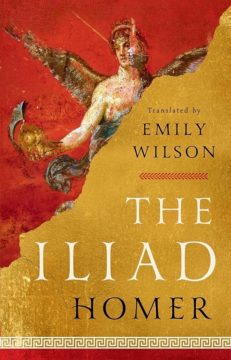Judith Thurman at The New Yorker:
 Some three millennia ago, a blind bard whose name in ancient Greek means “hostage” is said to have composed two masterpieces of oral poetry that still speak to us. The Iliad’s subject is death, and the Odyssey’s is survival. Both plumb the male psyche and women’s enthrallment to its bravado. “Tell the old story for our modern times,” Homer entreats his muse, in the Odyssey’s first stanza. The translator Emily Wilson took him at his word. Her radically plainspoken Odyssey, the first in English by a woman, was published six years ago. Her Iliad will be published in two weeks.
Some three millennia ago, a blind bard whose name in ancient Greek means “hostage” is said to have composed two masterpieces of oral poetry that still speak to us. The Iliad’s subject is death, and the Odyssey’s is survival. Both plumb the male psyche and women’s enthrallment to its bravado. “Tell the old story for our modern times,” Homer entreats his muse, in the Odyssey’s first stanza. The translator Emily Wilson took him at his word. Her radically plainspoken Odyssey, the first in English by a woman, was published six years ago. Her Iliad will be published in two weeks.
On a recent summer evening, Wilson surveyed the view from a precipice above Polis Bay, in the quiet village of Stavros, on the northwest coast of Ithaca. A shrine in the town square shows the floor plan of a ruin, not far away, that may be the palace of Odysseus. She pointed to a crescent beach five hundred feet below, slung like a hammock between two mountains. The cave at its far end was a site of Mycenaean goddess worship, and relics recovered from it include a set of bronze tripods which fit Homer’s description of gifts that Odysseus received from the Phaeacians. “We’ll swim there,” she said.
more here.
